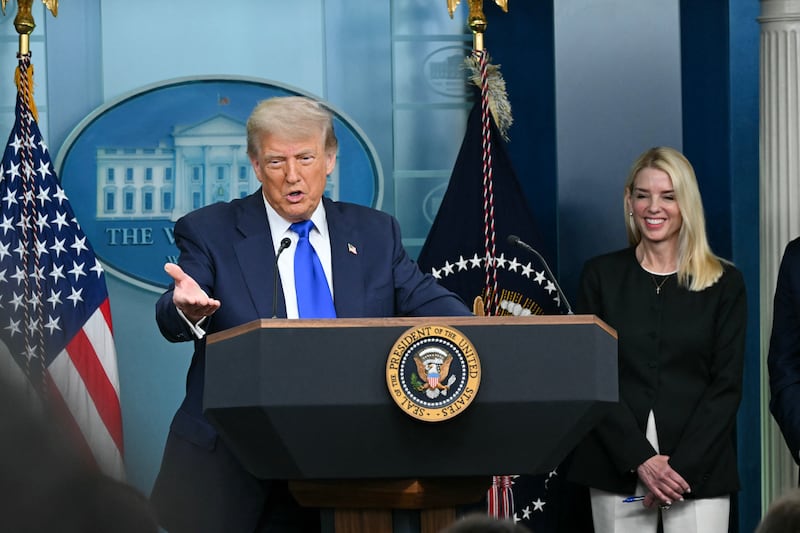A federal judge slammed President Donald Trump’s executive order ending birthright citizenship while blocking the administration from enforcing it, just two weeks after the Supreme Court created a path for his administration to enforce the order.
U.S. District Judge Joseph Laplante in Concord, New Hampshire, who was appointed by George W. Bush in 2007, issued a temporary injunction Thursday that blocks Trump’s effort across the country.
He found that the petitioners “demonstrated likelihood of success on the merits of their claims” after lawyers argued the order was unconstitutional. Laplante noted they would “likely to suffer irreparable harm if the order is not granted.”

The nationwide class-action lawsuit was filed by immigration advocates including the ACLU the same day the Supreme Court limited district judges’ power to block executive orders.
The groups filed the lawsuit on behalf of babies born on U.S. soil whose citizenship could be called into question under the order should it take partially take effect.
Laplante found that the petitioners met the requirements to be considered a class and temporarily blocked Trump’s effort.
He delayed the injunction by seven days to give the Trump administration time to appeal the decision.
The judge also issued a 38-page order later Thursday. He said the court, “has no difficulty concluding that the rapid adoption by executive order, without legislation and the attending national debate, of a new government policy of highly questionable constitutionality that would deny citizenship to many thousands of individuals previously granted citizenship under an indisputably longstanding policy, constitutes irreparable harm.”
The American Civil Liberties Union hailed the decision as a major knockback to Trump.
“This ruling is a huge victory and will help protect the citizenship of all children born in the United States, as the Constitution intended,” said Cody Wofsy of the ACLU’s Immigrants Rights Project, who argued the case. “We are fighting to ensure President Trump doesn’t trample on the citizenship rights of one single child.”
After the Supreme Court issued its landmark decision limiting district court judges’ power late last month, the president and his attorney general hailed it a major victory.
It meant that the three courts that had blocked his birthright citizenship order would have to go back and revisit their injunctions, so his order could potentially take effect in some states while remaining paused in others.
However, the country’s highest court also pushed back the president’s executive order from taking effect for thirty days from the opinion being issued, so it has not yet kicked in.
The delay gave plaintiffs a chance to respond, including filing the class action, which is what the Trump administration had argued before the Supreme Court was the appropriate tool to address an illegal order nationwide.
When asked about enforcing the president’s order during a celebratory press conference at the White House on June 27, Attorney General Pam Bondi sidestepped how the administration would approach it.
The attorney general instead noted the Supreme Court had not specifically issued a ruling on birthright citizenship, and she expected that decision in October, but expected the court to come through for the president.









